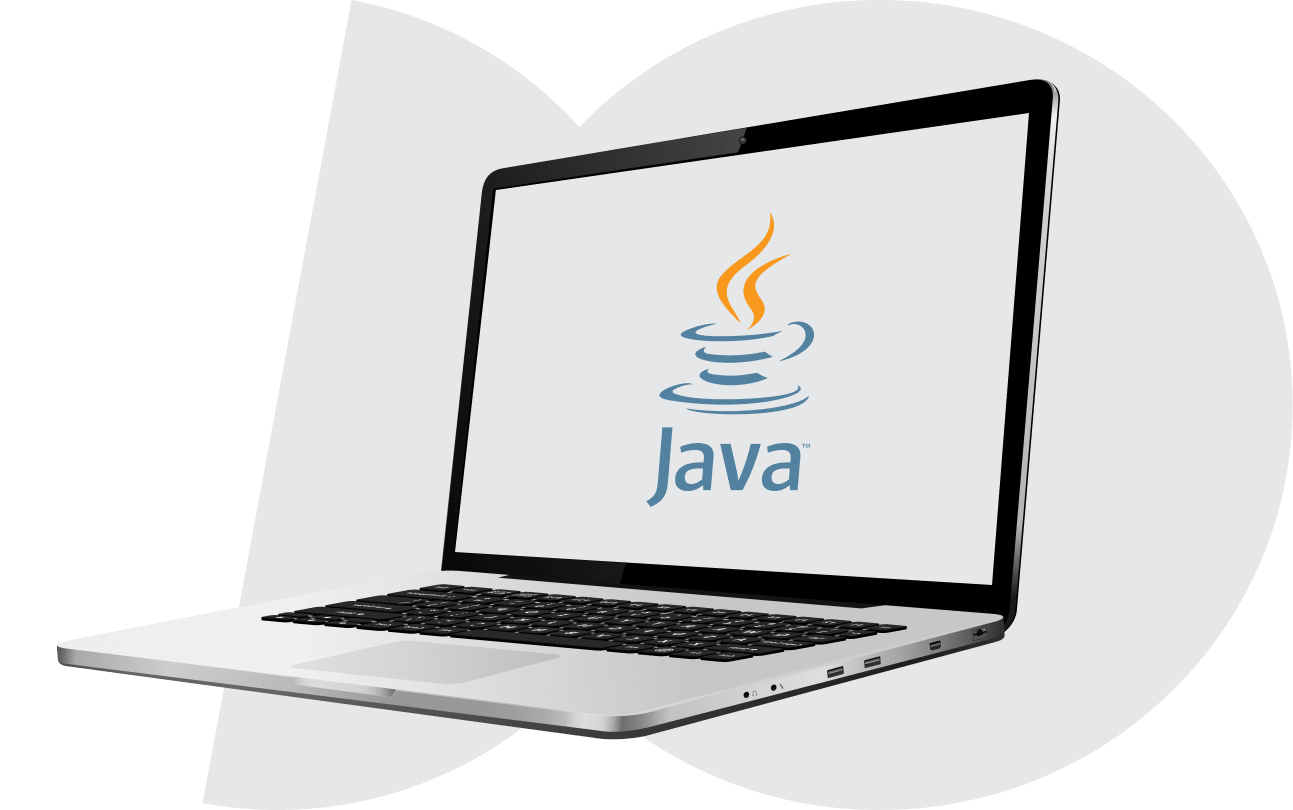- Home
- Technologies
- Java
- Hire Java Developers
Hire Java Developers
Hire vetted Java talent.
Our top 1% of tech talent has already undergone a rigorous vetting process. Get bilingual, nearshore React developers on your team within 2 weeks.
Trusted Java partner to many companies.
No time to find the top talent yourself? Skip the hassle of recruitment.

The Ultimate Guide for Hiring Java Developers
Released nearly 30 years ago, Java has become a leading programming language that is used in everything from big data and enterprise software to server-side tech and mobile application development. With so much demand for top talent, how do you hire Java developers who have the right skills and know-how for your business?
Out of the 1.4 million applications we receive on an annual basis, we hire only the top 1% of candidates. In this guide, we will explore the technical and creative hiring process for Java developers, exploring the key considerations, skills, and FAQs that you should know. With this knowledge, you will be well-equipped to hire skilled developers.
Before You Start Hiring
Project or Team Requirements
It's important for you to have clear insight into what your project needs and why your team would benefit from hiring a Java developer. Otherwise, you risk slowing the progress of your project. Depending on the specific function you’re looking to fill, the Java experience that you’re looking for will vary. Be sure to clearly articulate what you’re looking for to make the process of hiring a developer as seamless as possible.
Niche Experience in Java
Java is widely applicable across industry sectors. Consider which Java frameworks are well-suited to your project, such as Hibernate, Spring, or Apache Struts. Identifying the particular tools and systems your Java developer needs upfront will help you improve your hiring process.
Location and Timezone
Synergizing with your team goes beyond just working on the same project. Your Java developers need to be able to collaborate without any roadblocks. Selecting dedicated Java developers from a similar location and timezone will allow you to communicate and work together in real-time.
Timeline and Budget
Java development can vary in complexity. Streamline the process by specifying the duration of your contract. Do you want to hire Java programmers full-time, on a contract basis, or for another type of engagement? Specifying your timeline and budget will inform who you work with and for how long.
Culture Fit
When building a team for a software development project, technical skills are the top priority. Still, don't overlook the importance of hiring Java developers who fit into your team's culture. Soft skills like communication style, cultural values, and a collaborative mindset will all impact your team rapport and development process.
19 Skills Every Java Developer Should Have
While the Java programming language is relatively easy to learn, it’s difficult to master. Your Java developer should have a wide range of skills that they can apply to different facets of the ecosystem.
You should hire a Java developer with these essential skills. Developers with strong expertise and qualifications in these areas will help you cope with challenges and be more efficient.
Technical Skills to Look for in Your Ideal Java Developer
1. Deep Understanding of Java Core Concepts
Mastery of Java core concepts such as object-oriented programming, data structures, algorithms, and JVM internals is fundamental. A solid grasp ensures efficient and effective code.
2. Proficiency in Java Frameworks
Knowledge of popular Java frameworks like Spring, Hibernate, or Struts is vital. These frameworks speed up the development process and enforce good design principles and patterns.
3. Multithreading and Concurrency
Expertise in Java's concurrency and multithreading capabilities is critical for building high-performance applications, especially for handling complex, server-side developments.
4. Design Patterns and Architecture
Understanding and ability to implement advanced design patterns and architectural principles ensure that a Java developer can create scalable and maintainable systems.
5. API Development Skills
Experience in developing RESTful or SOAP APIs with Java is essential for modern application development, ensuring systems can communicate effectively and securely.
6. Database Management Skills
Proficiency in SQL, NoSQL, and database design, along with ORM technologies like JPA, Hibernate, is crucial for any backend development and data-driven applications.
7. Unit Testing and Debugging
Skills in unit testing frameworks such as JUnit or TestNG and debugging techniques are important for ensuring the reliability and quality of the code.
8. Version Control Systems
Familiarity with version control systems, especially Git, is necessary for collaborative development environments. They allow for code tracking and management.
9. Knowledge of JVM and Performance Tuning
Understanding the intricacies of the Java Virtual Machine (JVM) and how to optimize Java applications for performance can significantly enhance application speed and efficiency.
10. Experience with Build Tools
Experience with build tools like Maven or Gradle helps in automating the build process, managing dependencies, and maintaining a smooth workflow.
11. Proficiency in Specific Java Web Frameworks
Mastery of Java Web Frameworks like Spring MVC, JSF (JavaServer Faces), or Vaadin is crucial. Understanding the nuances of the specific framework can significantly speed up the development of web applications and ensure the use of best practices.
12. Front-end Skills
While primarily a back-end language, knowledge of front-end technologies (like HTML, CSS, JavaScript, and frameworks such as Angular or React) can be a valuable complementary skill for full-stack development.
13. Security Practices
Awareness of security practices, common vulnerabilities in Java applications, and techniques to secure applications is crucial to protect sensitive data and maintain trust.
14. Understanding of Microservices and Cloud Platforms
Experience with microservices architecture and cloud platforms like AWS or Azure is increasingly important because many Java applications move to cloud-based solutions.
15. Continuous Integration/Continuous Deployment (CI/CD)
Knowledge of CI/CD principles and tools (like Jenkins, Bamboo) for automating testing and deployment processes is a valuable asset for modern development and DevOps practices.
Soft Skills to Look for in Your Ideal Java Developer
16. Communication Skills
Great communication is at the core of a successful development process. Whether you’re crafting the foundations of a big data application or are developing native mobile apps, communication will help to streamline projects and facilitate collaboration.
17. Resilience
There are almost always obstacles in a development process. The best Java developers will demonstrate resilience and find workarounds to overcome them.
18. Curiosity
Java developers should continuously seek new ways to enhance their skill sets. Java has a vast ecosystem, and there are plenty of opportunities for growth and skills expansion. This will help both your business and the developer's professional development.
19. Decision-Making
Strong decision-making skills will allow your Java developer to prioritze different objectives and craft a solid plan. Decision-making will help your Java programmer make choices that are backed by evidence and logic.
12 Questions to Identify Top Java Developers
When interviewing Java developers, it's important to ask questions that first assess the candidates' technical skills and knowledge. Employers will also usually conduct a coding test to further assess specific on-the-job knowledge.
The following set of questions aims to uncover not only the developer's technical knowledge but also their problem-solving abilities, teamwork, communication skills, and adaptability—all crucial traits for success in a collaborative environment.
Here are a few examples of technical interview questions:
1. When would you use ArrayList compared to LinkedList in Java?
ArrayList allows you to store elements in an array, which provides quick access. You would use this feature whenever you need to access something regularly but don’t need to insert or delete elements as often because this can take longer in arrays.
On the other hand, LinkedList offers a doubly linked list, which has slow access but rapid insertion and deletion. You would rely on LinkedList when you need to constantly add or delete elements, often in larger collections of elements.
2. Explain what polymorphism is in Java.
Polymorphism allows objects of different classes to be treated as single objects of a common superclass. It works through inheritance mechanisms because Java allows one class to acquire the attributes and properties of another class. You can override methods in subclasses, facilitating different behavior with the same method signature.
3. Explain the differences between the Java Virtual Machine (JVM), Java Development Kit (JDK), and Java Runtime Environment (JRE)
These three components are the core of Java and all serve different roles in a Java application. The JVM is a runtime engine and manages memory allocation and execution. The JDK holds the frameworks and libraries for development. The JRE creates a runtime environment that lets developers execute Java applications.
4. How would you use Java Garbage Collection?
Java Garbage Collection automatically cleans up the JVM to optimize memory. You can optimize object creation to reduce any redundant memory usage and fine-tune settings. Alternatively, you could use VisualVM to monitor activity and adjust accordingly.
5. Why did you choose to specialize in Golang compared to other programming languages?
Learn about the candidate's motivation, preference for Golang's simplicity, performance, and specific use cases they are passionate about.
6. How do you ensure that your Golang applications are performant and efficient?
This question addresses the candidate's understanding of Golang's performance features, profiling tools, and strategies for writing efficient code.
7. How do you handle feedback, especially when asked to make changes to your code or approach?
This can shed light on the candidate's adaptability, communication skills, and how they handle constructive criticism.
8. Have you ever worked in a multi-disciplinary team with designers, backend developers, and other stakeholders? How did you ensure smooth collaboration?
This question explores the candidate's team collaboration skills and their approach to integrating Golang solutions with other parts of a project.
9. Can you describe a challenging project you worked on using Golang? What were the challenges and how did you overcome them?
This gives insight into the candidate's problem-solving skills, experience with Golang's unique challenges, and their ability to navigate complex projects.
10. What are some tools or practices you use to test your Golang applications?
Understanding the candidate's approach to testing can provide insight into their commitment to quality and familiarity with Golang's testing frameworks.
11. How do you keep yourself updated with the latest updates in Golang and its ecosystem?
This question assesses the candidate's commitment to continuous learning and staying current with new Golang features and community best practices.
12. Can you describe a time when you had to make a trade-off between perfect code and meeting a deadline? How did you handle it?
This reveals the candidate's practicality and decision-making in time-constrained environments, balancing code quality with business needs.
FAQ
How does Java development fit into modern web and application development?
Java remains a versatile and robust language. It is widely used for building enterprise-scale web applications, mobile app development, and large systems. Its portability, security features, and extensive libraries and frameworks make it adaptable to current development needs.
What are the advantages of using Java for my project?
Java development services bring numerous advantages, including platform independence, robust memory management, and scalability, making Java ideal for a wide array of applications. Its extensive community, libraries, and frameworks streamline development processes, providing robust and efficient solutions for any project.
What strategic advantages does Java offer compared to C#?
When comparing Java vs C#, Java stands out for its platform independence via the JVM, allowing it to operate seamlessly across different operating systems. Its extensive ecosystem and dominance in Android app development give it a wider reach than C#. Additionally, Java's long history has cultivated a large community and an abundance of resources, making it a robust and well-supported choice for developers.
What are the benefits of choosing to hire dedicated Java programmers for my business?
Hiring dedicated Java developers brings expert focus, enhanced quality, and efficiency to your projects. It allows for flexible team scaling and introduces specialized skills tailored to your needs, speeding up software development and improving outcomes.

How Businesses Can Overcome the Software Development Shortage
BairesDev Ranked as one of the Fastest-Growing Companies in the US by Inc. 5000









